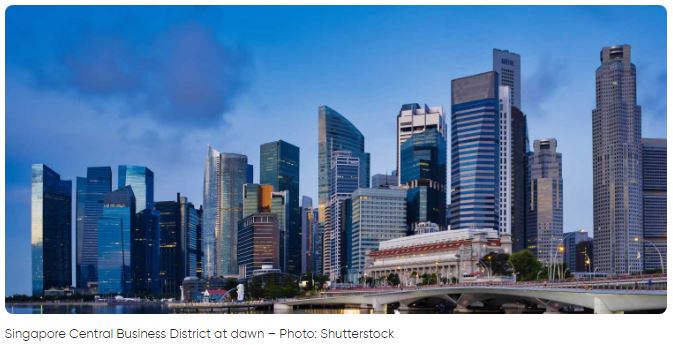Singapore core prices at 9-year high amid global price fight
The battle against inflation which began from the US and the UK has now crossed to Asia and as far as Singapore which reported the highest increase in prices in nine years.
Singapore’s core inflation in January advanced to 2.4% year-on-year, the highest level in more than nine years, data released by the government showed. Overall inflation was 4% year-on-year, unchanged from the month of December 2021.
“Global inflation has risen further recently and could stay high for some time before easing in the latter half of the year,” the government statement said. “In the near term, heightened geopolitical risks and tight supply conditions will keep crude oil prices elevated.
“Bottlenecks in global transportation and labour shortages in a number of Singapore’s major trading partners are also likely to persist,” the statement added.
Demand-pull inflation
Much like its peers in Asia, the acceleration in prices was driven by food, electricity and gas items. Simultaneously the cost of retail items declined at a slower pace. The data pointed to a stronger demand-pull inflation pressure as labour shortages were felt.
“The latest statement appears to have tilted further towards a hawkish tone following the 25 January “inter-meeting” announcement that the SGD NEER policy band slope would be increased slightly,” economists at Barclays said in a note. The SGD NEER, Singapore dollar nominal effective exchange rate, is the exchange rate of the Singapore dollar managed against a basket of currencies.
Demand conditions in Singapore are believed to be strengthening even as labour market conditions are set to tighten due to revised rules on foreign labour.
The estimated increases in taxes in 2023 may further intensify inflation and result in sustained and elevated levels of inflation. That in turn could keep the central bank’s hawkish stance and increase the possibility of monetary tightening.
Supply-side bottlenecks
“Despite slipping below consensus estimates, the latest inflation turnout suggests that inflation may continue to climb in the near term. Upside pressure on inflation will likely persist given the ongoing supply-side bottlenecks coupled with elevated global energy prices due to heightened geopolitical tensions,” ING economist Nicholas Mapa said in a note.
Earlier this week, the Reserve Bank of New Zealand (RBNZ) became the first authority in the Asia-Pacific region to harden interest rates and has extended its extreme hawkishness as it seeks to tame inflation.
A series of interest rate increases await the US, the world’s largest and also taken as a proxy, as it battles multi-decadal inflation. Across the continent in Europe, the UK raised interest rates to cool down the highest price increases since 1992.
The RBNZ on Wednesday raised the official cash rate (OCR) by 25 basis points to take it to 1% and said that further monetary policy tightening is on the cards.
The world’s largest economies have been facing pressures of rising costs as they struggled to come out of the difficulties that emanated from the coronavirus pandemic outbreak in March 2020. Those pressures have intensified to a greater degree due to the ongoing US-Russia stand-off over Ukraine.
Crude oil prices have surged this year since the geopolitical stand-off erupted and the commodity now trades within striking distance from the $100 per barrel mark.
Source: https://capital.com/singapore-core-prices-at-9-year-high-amid-global-price-fight


 Thailand
Thailand




